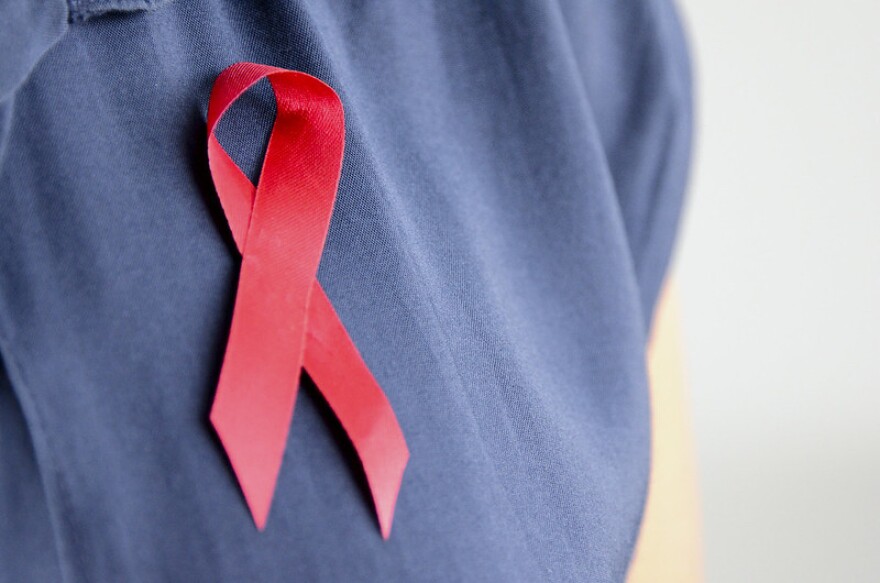Like so many other events in 2020, the Oasis Florida’s World AIDS Day event has shifted to a virtual evening of raising awareness and remembering the lives lost. Despite advances in science and medicine, new HIV infections continue at alarming rates in the state of Florida.
“Unfortunately, in the state of Florida, the numbers are really bad,” said Kurt Goodman, executive director at Oasis Florida, an AIDS service organization serving the panhandle from Escambia to Walton County. “We continue to see new HIV infections, particularly in heterosexual community we’re seeing a pretty significant increase. The gay community seems to have it together. They know about prep, they know about treatment as prevention, they’ve had it drilled into them since the 80s and 90s.”
And that problem exists in Northwest Florida.
“If you take a look at the numbers, for example Walton County, 89% of new infections were in the heterosexual community so it really is a significant factor,” said Goodman.
Looking further at the demographics, Goodman said African Americans and Hispanics are affected by HIV at higher rates than the white community.
“Like in the state of Florida right now, one in 292 white adults are living with HIV, one in 156 Hispanic adults are living with HIV and one in 49 African American adults in the state of Florida are living with HIV,” said Goodman.
The big focus for Oasis right now is reaching out to the heterosexual community about prevention methods, but that’s been hard to do in the age of COVID when outreach events have been on hold and testing is done on an appointment basis.
There has always been a stigma associated with HIV/AIDS since it was identified in the early 1980s, because the virus disproportionately affects gay men. That stigma is still one of the “biggest hurdles” of stopping the spread of HIV, said Goodman.
“The main message I want to get out there is to break through some of that stigma and stereotypes,” he said. “Yes, this started as a predominantly gay disease, but that’s not the reality today. The rapid spread in HIV is actually happening in the heterosexual community or as a result of IV drug use.”
Goodman says anyone who is sexually active could be at risk of HIV and should look at testing as part of their overall health check-ups. Thanks to advances in medicine, HIV is more of a “manageable chronic disease,” Goodman said. And preventative medicine, PrEP, is 99% effective when taken as prescribed.
“We’re 40 years into this pandemic and we still don’t have a cure or a vaccine, but we don’t need it,” he added. We actually have the tools in our toolbox now to end HIV in the United States without the cure or vaccine.”
Cost can be a barrier. Getting prescribed PrEP, for instance, can cost between $1,300 to $1,500 a month, but there is help out there. Through a grant with Sunday’s Child, Oasis Florida is able to help cover costs so that the medicine is free to at-risk individuals.
Individuals living with HIV who are successfully treated don’t have to worry about passing the virus to their sexual partner, said Goodman.
“I’ll say that again, you cannot pass the virus to your sexual partners,” he added. “That’s something we really need to get out there. You can even start a family with an HIV-negative partner naturally without any fear of passing the virus along to a partner or child.”
In a typical year, World AIDS Day is commemorated with a gala and a large raffle prize. This year, it’s all virtual. On World AIDS Day, at 6 p.m. Tuesday, Oasis Florida will have a candlelight memorial on Facebook live. There will also be three cash-prize giveaways. Those who have been tested up until Dec. 1 are eligible for a prize.
Looking forward to 2021, Oasis Florida is working to get the word out about testing. Annually, the organization tests 3,000 to 4,000 people for HIV and syphilis, but Goodman said he’d like to double that number.
“One in seven people living with HIV don’t know they have the disease,” he said. “If we can just get everybody to get a test, and we can find the people who are living with HIV, get them into care, get them on medications and get them healthy so they’re not passing the disease to someone else, get people who are at-risk to take PrEP, we’ve effectively ended HIV in the United States with the tools we already have.”
“Know your status, get tested — that’s really where it starts.”
For more information, or to make an appointment for testing, visit oasisflorida.org.



